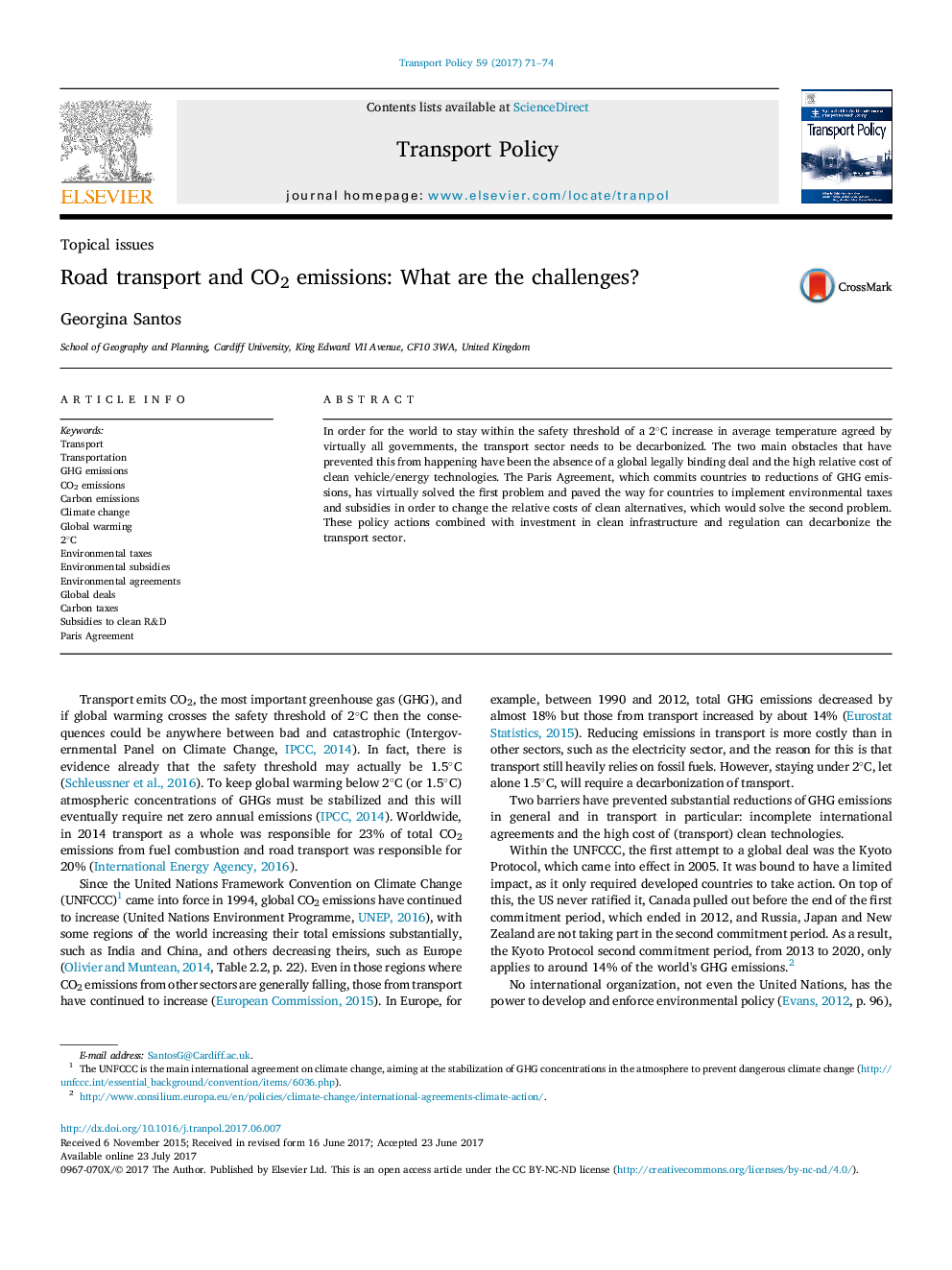| Article ID | Journal | Published Year | Pages | File Type |
|---|---|---|---|---|
| 5119133 | Transport Policy | 2017 | 4 Pages |
â¢For the world to stay within a 2°C increase in average temperature the transport sector needs to be decarbonized.â¢The absence of a global deal and the high relative cost of clean technologies have acted as obstacles for this.â¢The Paris Agreement has virtually solved the first problem.â¢The Agreement has also paved the way for countries to implement environmental taxes and subsidies.â¢Environmental taxes and subsidies will change the relative costs of clean technologies, which would solve the second problem.â¢The above combined with R&D subsidies, regulation and investment in clean infrastructure, can decarbonize transport.
In order for the world to stay within the safety threshold of a 2°C increase in average temperature agreed by virtually all governments, the transport sector needs to be decarbonized. The two main obstacles that have prevented this from happening have been the absence of a global legally binding deal and the high relative cost of clean vehicle/energy technologies. The Paris Agreement, which commits countries to reductions of GHG emissions, has virtually solved the first problem and paved the way for countries to implement environmental taxes and subsidies in order to change the relative costs of clean alternatives, which would solve the second problem. These policy actions combined with investment in clean infrastructure and regulation can decarbonize the transport sector.
